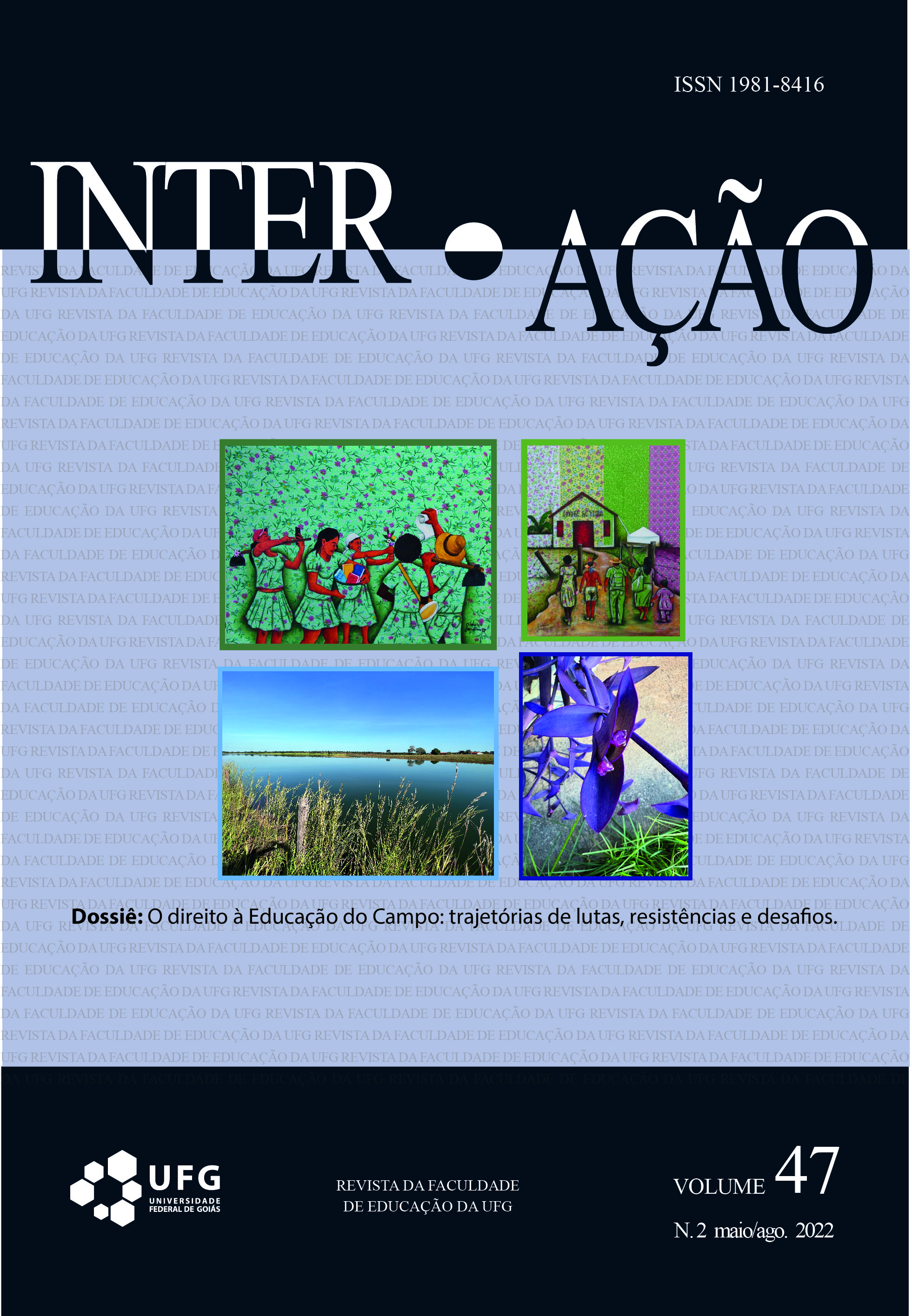PRONERA: FROM PUBLIC POLICY TO PEDAGOGICAL PRAXIS IN COUNTRYSIDE SCHOOLS
DOI:
https://doi.org/10.5216/ia.v47i2.72158Abstract
This article analyzes Pronera as a public educational policy built with social movements in the countryside and dialogues with pedagogical praxis in public schools. It results from documentary research on guidelines, decrees, resolutions, letters, reports and manifestos, and bibliographic study of articles, theses and dissertations. The concept of public policy is understood according to the relations between civil society and governments, considering the conjuncture and structure. Pedagogical praxis refers to the movement of training processes creation and organization at school and outside of it, aimed at social transformation. It is concluded that Pronera strengthens national and regional articulations, teacher’s formation, research groups and moves Brazilian universities in the construction of political-pedagogical praxis.
KEYWORDS: Pronera. Educational Policies. Pedagogical Praxis. Countryside Education. Public School.
Downloads
Published
How to Cite
Issue
Section
License
Copyright (c) 2022 Maria Antônia de Souza, Rosana Aparecida da Cruz Paula

This work is licensed under a Creative Commons Attribution-NonCommercial 4.0 International License.
Inter-Ação uses the Creative Commons Attribution 4.0 License for Open Access Journals (Open Archives Initiative - OAI) as the basis for the transfer of rights. Open access means making documents available on the Internet free of charge, so that users can read, download, copy, distribute, print, search, or link to the full text of documents, process them for indexing, use them as input data for software programs, or use them for any other lawful purpose, without financial, legal, or technical barriers.
Authors publishing in this journal agree to the following conditions:
1) Authors retain copyright and grant the journal the right of first publication, with the work simultaneously licensed under the Creative Commons Attribution License, which permits redistribution of the work with attribution and first publication in this journal.
2) Authors are permitted to enter into additional, separate agreements for non-exclusive distribution of the version of the work published in this journal (e.g., for publication in an institutional repository or as a book chapter), with attribution and first publication in this journal.
3) Authors are permitted and encouraged to publish and distribute their work online (e.g. in institutional repositories or on their home page) at any time before or during the editorial process, as this may generate productive changes as well as increase the impact and citation of the published work.















